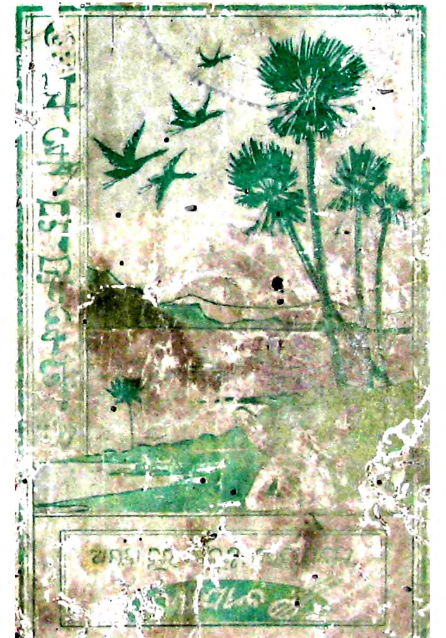Sabuja Kabita, published in 1931 by the esteemed Odia poet Kalindi Charana Panigrahi, is an enchanting collection of poetry that captures the essence of nature and its profound connection to human emotion. The title translates to Green Poetry, symbolizing the lushness of the natural world and the vibrant feelings it evokes within the soul. Through his lyrical verses, Panigrahi invites readers to delve into a realm where nature and human experience intertwine, presenting a rich tapestry of imagery, emotion, and philosophical reflection.
At the heart of Sabuja Kabita lies an exploration of the relationship between man and nature. Panigrahi draws inspiration from the picturesque landscapes of Odisha, weaving the sights and sounds of the natural world into his poetry. His use of vivid imagery brings to life the season’s beauty—from the vibrant hues of spring to the tranquil stillness of rain-soaked evenings. Each poem stands as a testament to the poet’s ability to capture fleeting moments in nature and translate them into profound reflections on life.
What makes Sabuja Kabita particularly captivating is Panigrahi’s capacity to evoke deep emotion through his depictions of nature. His verses portray nature not merely as a backdrop, but as a living entity that mirrors human feelings. For instance, a gentle breeze might symbolize a lover’s caress, while the tumultuous roar of a thunderstorm could represent inner turmoil. Through these analogies, Panigrahi connects personal experiences with the vastness of the natural world, creating a bridge between the individual and the universe.
Additionally, the collection delves into philosophical themes concerning existence, the passage of time, and the transient nature of life. Panigrahi often reflects on the impermanence of beauty—how blossoms bloom and wither, and how life unfolds in cycles. This awareness is not merely melancholic; rather, it carries a sense of acceptance and reverence for the fleeting beauty that life offers. The poet encourages readers to cherish each moment, recognizing that even the simplest aspects of nature can carry profound meanings and insights.
Sabuja Kabita also serves as a significant cultural artifact of early 20th-century Odisha. In the backdrop of a burgeoning nationalist movement, Panigrahi’s work mirrors a growing appreciation for local culture, language, and nature. His poetry contributes to the rich tradition of Odia literature, highlighting the region’s natural beauty and cultural heritage. By elevating local themes and landscapes, Panigrahi celebrates the very essence of Odisha, instilling pride in his readers and encouraging a connection to their roots.
Books Info
| Books name | Sabuja Kabita / ସବୁଜ କବିତା |
| Author | Kalindi Charana Panigrahi |
| No Of pages | 159 |
| Publisher | Sabuja Sahitya Samiti |
| Publication | 1931 |
| Printed At | Utkal Sahitya Press |
| Distributor | NA |

